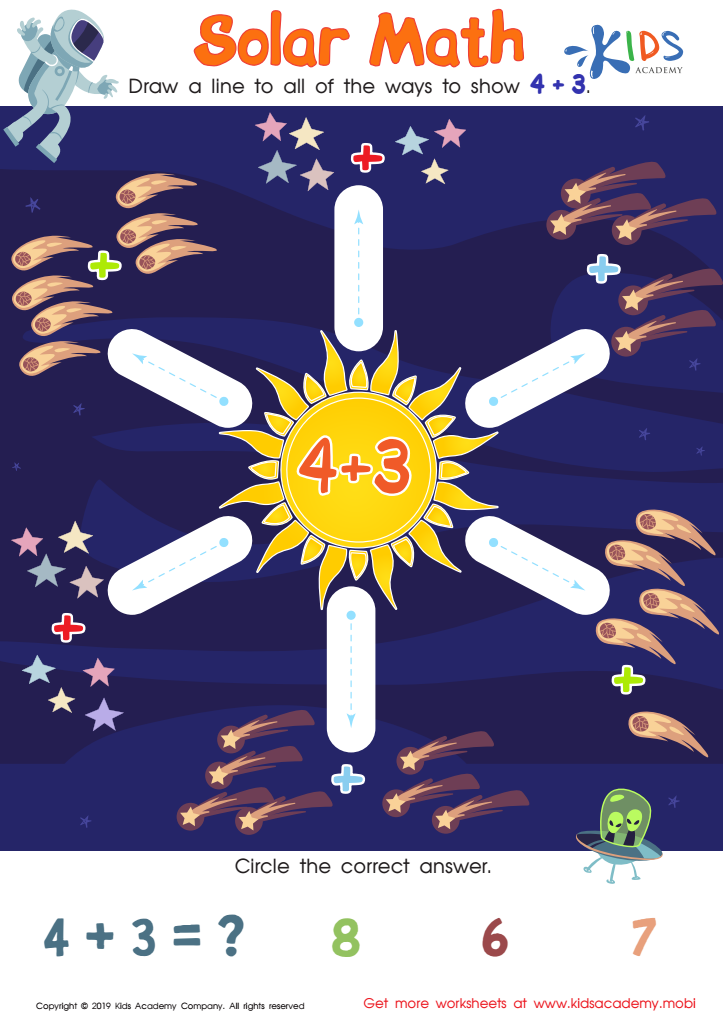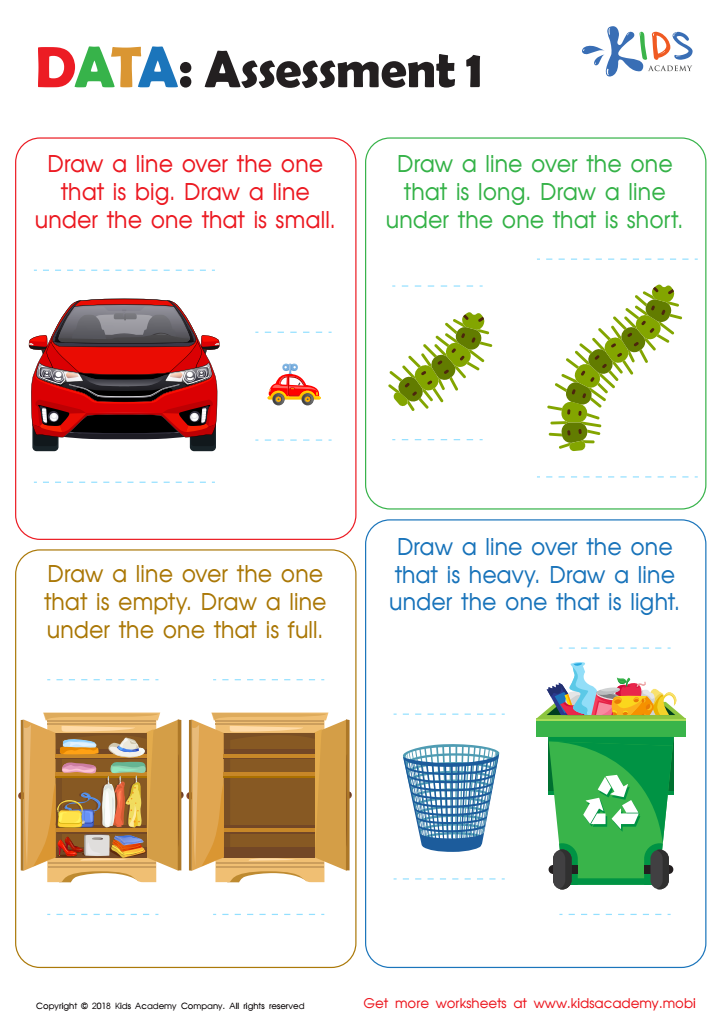Mathematical problem-solving Normal Worksheets for Ages 6-8
3 filtered results
-
From - To
Discover our engaging Mathematical Problem-Solving Worksheets designed specifically for children ages 6-8. These thoughtfully crafted worksheets enhance critical thinking skills while providing a fun way for young learners to tackle math challenges. Each activity focuses on real-world applications, helping children to easily grasp concepts such as addition, subtraction, and basic geometry. With a variety of intriguing problems, our resources promote both independent learning and collaborative discussions. Perfect for classroom or at-home practice, our worksheets create an enjoyable atmosphere for honing essential math skills. Empower your child's academic journey with our expertly designed resources to nurture confident problem-solving abilities!


Solar Math Worksheet


Comparisons Worksheet


Data: Assessment 1 Worksheet
Mathematical problem-solving for children ages 6-8 is pivotal for their cognitive development and academic success. During these formative years, children are transitioning from concrete thinking to more abstract reasoning. Engaging in problem-solving helps them develop critical cognitive skills such as logical thinking, creativity, and perseverance. Parents and teachers play a crucial role in fostering these skills by integrating problem-solving activities into daily learning.
Mathematical problem-solving encourages children to analyze situations, recognize patterns, and devise strategies, which enhance their overall mathematical understanding. It empowers them to tackle challenges with confidence, laying a foundation for more complex mathematical concepts in the future. Moreover, it often involves real-world applications, allowing children to see the relevance of math in daily life and promoting a positive attitude towards the subject.
Involving parents in problem-solving activities also strengthens the child-parent bond while creating a supportive learning environment. Teachers can implement collaborative problem-solving in the classroom, encouraging teamwork and communication among students. Ultimately, emphasizing mathematical problem-solving fosters resilience, adaptability, and critical thinking skills that are essential not only in mathematics but in various life situations. This holistic development underlines why it is essential for parents and teachers to prioritize math problem-solving for children in this age group.
 Assign to My Students
Assign to My Students






.jpg)









